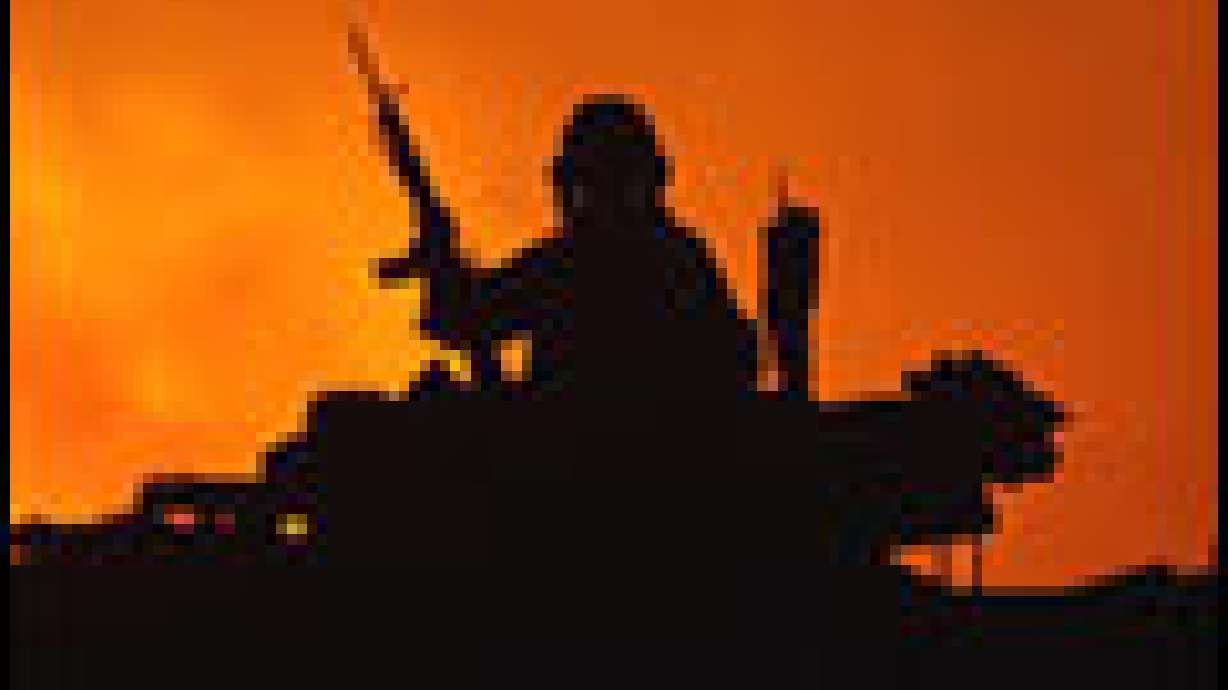Estimated read time: 3-4 minutes
This archived news story is available only for your personal, non-commercial use. Information in the story may be outdated or superseded by additional information. Reading or replaying the story in its archived form does not constitute a republication of the story.
BASRA, Iraq (AP) -- British troops restored badly needed electricity to parts of Basra and supervised distribution of gasoline Monday after two days of protests over fuel and power shortages. In northern Iraq, a U.S. soldier was killed and two others wounded in a bomb attack.
The soldiers from the 4th Infantry Division came under attack late Sunday with a homemade bomb in front of the police station they were guarding in Baqouba, 45 miles north of Baghdad, Maj. Mark Solomons said.
The death brought to 57 the number of U.S. troops killed in action since May 1, when President Bush declared major combat over.
In the southern city of Basra, a British patrol returned fire after it came under attack late Sunday, wounding two assailants, British military spokesman Capt. Hisham Halawi told The Associated Press. Two others escaped and were being pursued, he said. There were no British casualties.
Basra had been one of the quietest cities in the country. But on the second day of protests Sunday, an Iraqi protester and a Nepalese security guard were shot dead.
The protester was killed after an angry crowd tried to block four four-wheel drive vehicles crossing the main bridge leading to the airport and the British military headquarters. It was not clear who shot the demonstrator.
The dead guard worked for Global Security, a private company hired to provide security and other services for coalition bases throughout the country. The guard was bringing mail from Kuwait to United Nations staff in Basra. He was shot by an unknown assailant as a two-car convoy neared an intersection in the center of the city, coalition spokesman Iain Pickard said.
British troops patrolling the area gave away their own fuel to calm the demonstrators, coalition spokesman Charles Heatly said from Baghdad.
Over the weekend, about 1,000 protesters blocked roads with rows of burning tires and threw rocks at vehicles and British troops, who suffered only minor injuries, Halawi said.
"The town is calm this morning. People have had power since last night, and petrol is getting at petrol stations," he said.
In Baghdad, Heatly said coalition forces were taking steps to alleviate the power and fuel crisis in Basra. The coalition also brought in two new gas turbine generators to try to patch up the antiquated electricity system, and British soldiers were supervising distribution at gas stations to make sure people were not charged exorbitant black-market prices.
Late Sunday, two bombs exploded about 60-70 yards from the British office in central Baghdad, witnesses said. There was no visible damage to the office, but a Syrian national who was part of a convoy of trucks taking supplies to the office was injured, according to the witnesses.
There was no indication whether the British office was the target. U.S. troops removed the truck in which the Syrian was injured within the hour of the explosion.
A team of FBI investigators, meanwhile, searched the bombed Jordanian Embassy, where a car bomb on Aug. 7 killed 19 people.
The attack rattled Baghdad residents who feared it signaled a rise of terror tactics in the already violent Iraqi capital. L. Paul Bremer, the top civilian administrator in Iraq, said the al-Qaida-linked Ansar al-Islam group was at the top of his list of suspected terrorist organizations operating in the country.
U.S. military officials have blamed almost daily attacks on Saddam loyalists and Iraqis angered by a foreign occupation. There is growing concern that foreign fighters in Iraq may join the conflict, conducting terrorist attacks like the one on the Jordanian Embassy.
Elsewhere Sunday, the U.S. military reported that four American soldiers were wounded in guerrilla attacks, including two at the Baghdad University complex and two others in Saddam's hometown of Tikrit.
One U.S. soldier died of heat stroke and another was found dead in his living quarters on Sunday, the military said.
(Copyright 2003 by The Associated Press. All Rights Reserved.)









